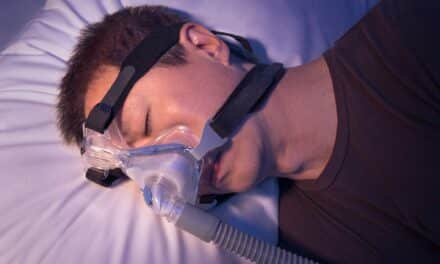Sabino Recovery, a new integrated trauma and addiction treatment center northeast of Tucson, is a treatment center that includes a state-of-the-art sleep lab. The sleep lab helps provide a complete picture of individuals’ needs that enables Sabino Recovery to customize a treatment plan for each resident. The sleep clinic, which allows for sleep assessments and extensive lab testing to be performed on-site, was a key element of the original vision for Sabino Recovery, founded to offer recovery from addiction and other conditions based on the premise that trauma is the core issue that drives unhealthy, painful behaviors.
With sleep issues being a common factor in addiction, PTSD, and many other conditions caused by trauma, Sabino Recovery’s focus on sleep integrates an important component of treatment that is absent from other facilities and programs. It is part of the center’s proprietary Sabino Model, the therapeutic model developed by Nancy Jarrell O’Donnell, co-founder of Sabino Recovery and president of Clinical Services and Operations, to treat the core issue of trauma through the use of integrated modalities including psychotherapy, equine therapy, somatic experience, EMDR, neuro-psychodrama, medical treatment, and a variety of integrative therapies.
“Our approach to treating trauma and resulting symptoms of alcoholism, addictions, depression, anxiety, and other issues is based on the most recent research in neuroscience, and at its core is the concept of neuroplasticity—the ability of the brain to ‘rewire’ itself in response to experience,” says Jarrell O’Donnell, MA, LPC, EAP, CSAT, in a release. “Research on the brain has shown that neuroplasticity is effected by lifestyle choices, and especially sleep patterns. This is why, to truly provide holistic treatment, it only makes sense we have to treat sleep in our program.”
While sleep has not traditionally been addressed during the clinical recovery process, Sabino Recovery views it as necessary to treating the whole person. It also provides an opportunity to improve the experience of recovery, since individuals commonly experience sleep issues during the early stages. Similarly, individuals who have experienced trauma may have developed sleep issues as a result that help cause or exacerbate addiction and other conditions. By monitoring sleep before and during the recovery period, Sabino Recovery is able to measure outcomes on each individual’s physical progress. Additionally, the sleep studies allow for immediate isolation of any issues that may be preventing quality sleep, thereby improving the overall odds for recovery.
REM sleep is typically absent or minimal in people with addictions, trauma, and depression. Without it, the ability for decision making, healthy choices, and clear memory are impaired. By including a state of the art sleep lab in its program, Sabino Recovery goes far beyond providing “sleep hygiene” lectures and generalized recommendations. Individual treatment programs are designed to address any detected sleep issues, while a sleep specialist provides consults and monitors progress, augmenting the chances for lasting recovery.
“It is also significant that we create the environment for natural sleep cycles to occur,” Jarrell O’Donnell says. “For instance, we know that sunlight decreases symptoms of depression and enhances mood and energy through the release of endorphins, and the expansiveness of our environment helps us to feel more stable and grounded. This is why our therapeutic schedule is so finely thought out; even the time of day that outdoor therapies and activities occur is intentional.”
Using the most current sleep medicine software and acquisition system available, the lab combines the latest in EEG technology and respiratory technology to conduct a sleep study for incoming patients who are determined through an extensive intake process to have potential overt or underlying sleep issues. The study measures a variety of factors—including heart rate and rhythm, breathing rate, air flow, oxygen saturation, brain wave activity, and muscle activity—to evaluate quantity and quality of sleep, as well as how the individual cycles through the various sleep stages. The sleep clinic is run by George Sirakis, a registered polysomnographic technologist (RPSGT), and reports are interpreted by Jyotsna Sahni, MD, a physician who is board certified in sleep medicine. The two bring a combined 20+ years of sleep expertise and experience.
Given there has been little crossover between the fields of sleep medicine and trauma and addiction, there is a lack of pre-existing data on how closely sleep is tied to challenges commonly faced in recovery. As Sabino Recovery pioneers the merging of the two areas, Nancy Jarrell O’Donnell anticipates they will produce data illustrating that recovery and sleep are very often connected and can have a substantial impact on one another.




I can imagine that sleep clinics probably hold so many answers that many people don’t realize. I personally don’t get enough sleep, and if something went wrong, that would be one of the first things I would look at.